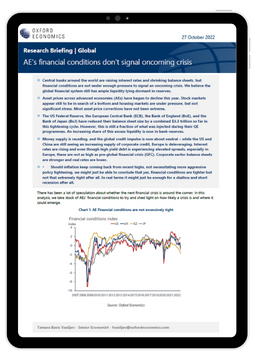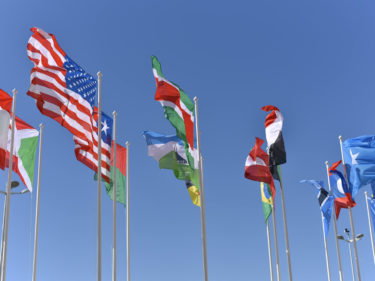Research Briefing
| Oct 27, 2022
Advanced Economies’ financial conditions don’t signal oncoming crisis

Central banks around the world are raising interest rates and shrinking balance sheets, but financial conditions are not under enough pressure to signal an oncoming crisis. We believe the global financial system still has ample liquidity lying dormant in reserves.
What you will learn:
- Asset prices across advanced economies (AEs) have begun to decline this year. Stock markets appear still to be in search of a bottom and housing markets are under pressure, but not significant stress. Most asset price corrections have not been extreme.
- The US Federal Reserve, the European Central Bank (ECB), the Bank of England (BoE), and the Bank of Japan (BoJ) have reduced their balance sheet size by a combined $3.3 trillion so far in this tightening cycle. However, this is still a fraction of what was injected during their QE programmes. An increasing share of this excess liquidity is now in bank reserves.
- Money supply is receding, and the global credit impulse is now about neutral – while the US and China are still seeing an increasing supply of corporate credit, Europe is deleveraging. Interest rates are rising and even though high yield debt is experiencing elevated spreads, especially in Europe, these are not as high as pre-global financial crisis (GFC). Corporate sector balance sheets are stronger and real rates are lower.
Tags:
Related Services

Service
Global Risk Service
A suite of data-driven and forward-looking tools that provide an objective and transparent measure of risk.
Find Out More
Service
Global Economic Model
Our Global Economic Model provides a rigorous and consistent structure for forecasting and testing scenarios.
Find Out More
